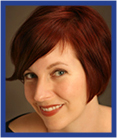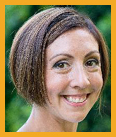Welcome to the September edition of Ask the Sweethearts! Before we begin: Congratulations to Katrina, a.k.a. Bookish Kat, winner of our Instagram giveaway of Darcy Wood’s Summer of Supernovas! Many thanks to all who entered and to all who follow us on IG!
Now, for this month’s question: What is the best piece of writing advice you’ve ever received?
 Robin Constantine: I love reading craft books and talking to other writers about their process! I’m constantly collecting tips and strategies to improve my writing. It’s hard to pinpoint the best writing advice because I think my needs change with each project. One of my recent favorites comes from Ingrid Sundberg’s vlog — Ingrid’s Notes. Ingrid is the author of the YA novel All We Left Behind, and if you haven’t subscribed to her channel, you should. It’s a virtual treasure trove of writing gems and she is super inspiring! In her vlog post, Creating Your Own Writing Philosophy, she talks about trusting yourself and using what works for YOU, as opposed to thinking there’s only one way to write and if you have problems working that way you’re a failure. I love that! It’s a very freeing way to look at the creative process!
Robin Constantine: I love reading craft books and talking to other writers about their process! I’m constantly collecting tips and strategies to improve my writing. It’s hard to pinpoint the best writing advice because I think my needs change with each project. One of my recent favorites comes from Ingrid Sundberg’s vlog — Ingrid’s Notes. Ingrid is the author of the YA novel All We Left Behind, and if you haven’t subscribed to her channel, you should. It’s a virtual treasure trove of writing gems and she is super inspiring! In her vlog post, Creating Your Own Writing Philosophy, she talks about trusting yourself and using what works for YOU, as opposed to thinking there’s only one way to write and if you have problems working that way you’re a failure. I love that! It’s a very freeing way to look at the creative process!
 Darcy Woods: I’ve been incredibly fortunate to get great advice from so many generous souls in this industry. “Keep your eyes on your own paper,” has always been a perennial favorite of mine. This simple phrase (that you probably heard on repeat in elementary school) does the job of succinctly reminding writers not to use others’ “success” as a measuring stick for their own. Does it sound easy? Perhaps. But it isn’t. Because it goes against our human nature to compare, which inevitably pulls us down that dark, spiraling suckhole of despair. I think Teddy Roosevelt really nailed it when he said, “Comparison is the thief of joy.” So stay joyous! And maybe invest in some horse blinders to wear along the way.
Darcy Woods: I’ve been incredibly fortunate to get great advice from so many generous souls in this industry. “Keep your eyes on your own paper,” has always been a perennial favorite of mine. This simple phrase (that you probably heard on repeat in elementary school) does the job of succinctly reminding writers not to use others’ “success” as a measuring stick for their own. Does it sound easy? Perhaps. But it isn’t. Because it goes against our human nature to compare, which inevitably pulls us down that dark, spiraling suckhole of despair. I think Teddy Roosevelt really nailed it when he said, “Comparison is the thief of joy.” So stay joyous! And maybe invest in some horse blinders to wear along the way.
 Erin Fletcher: The best piece of writing advice anyone ever gave me went something like this: “If you’re bored writing it, the reader will be bored reading it.” That applies so often when I find myself stuck writing a boring scene where I’m just waiting for the next big thing to happen. Chances are good that my readers (if they haven’t abandoned the book yet!) are waiting too, so why not just jump to that next big thing right now? The advice taught me not to waste my time or my readers’ time. It taught me to include what’s truly important in the book and to let the rest go.
Erin Fletcher: The best piece of writing advice anyone ever gave me went something like this: “If you’re bored writing it, the reader will be bored reading it.” That applies so often when I find myself stuck writing a boring scene where I’m just waiting for the next big thing to happen. Chances are good that my readers (if they haven’t abandoned the book yet!) are waiting too, so why not just jump to that next big thing right now? The advice taught me not to waste my time or my readers’ time. It taught me to include what’s truly important in the book and to let the rest go.
 Karole Cozzo: I’ve received so many tidbits of advice over the past few years, all of which has shaped my experiences positively, but I tried to pick something that is extremely practical and hopefully useful to aspiring authors out there: When seeking publication, follow the rules. As an unpublished author, I believed it was “okay” that I was querying YA manuscripts that were around 120k in length. I believed that querying a trilogy was a good thing, because I had more “product” to offer a publisher. I kept running into the wall, hoping an exception would be made for me, even though YA novels are most typically much shorter, and very few agents/publishers are eager to take a chance on ONE book from an unknown, let alone three! I finally achieved success (aka published my first novel) when I told myself: “Okay, you’re going to sit down and work within the framework you know exists. You’re going to write a stand alone novel within the typical word range and start there. You may have other aspirations and ideas, but until you start playing by the rules, they’re not going to let you into the game.” I’m glad I finally listened to this advice I’d heard many times instead of thinking I could work around it when I was so green. And I think it’s important for all hopeful authors to keep in mind when submitting.
Karole Cozzo: I’ve received so many tidbits of advice over the past few years, all of which has shaped my experiences positively, but I tried to pick something that is extremely practical and hopefully useful to aspiring authors out there: When seeking publication, follow the rules. As an unpublished author, I believed it was “okay” that I was querying YA manuscripts that were around 120k in length. I believed that querying a trilogy was a good thing, because I had more “product” to offer a publisher. I kept running into the wall, hoping an exception would be made for me, even though YA novels are most typically much shorter, and very few agents/publishers are eager to take a chance on ONE book from an unknown, let alone three! I finally achieved success (aka published my first novel) when I told myself: “Okay, you’re going to sit down and work within the framework you know exists. You’re going to write a stand alone novel within the typical word range and start there. You may have other aspirations and ideas, but until you start playing by the rules, they’re not going to let you into the game.” I’m glad I finally listened to this advice I’d heard many times instead of thinking I could work around it when I was so green. And I think it’s important for all hopeful authors to keep in mind when submitting.
 Stephanie Scott: This is more editing advice: To get a fresh look at my writing, I load the draft into my ereader where I can’t edit. I have to resist the urge to tweak and fine tune while getting an overview of the story. It also helps to change to a different font for reading than I use for writing to get a new feel for the words. I’ve only just started this, but you can have Microsoft Word read text aloud. Hearing your own words back highlights so many inconsistencies.
Stephanie Scott: This is more editing advice: To get a fresh look at my writing, I load the draft into my ereader where I can’t edit. I have to resist the urge to tweak and fine tune while getting an overview of the story. It also helps to change to a different font for reading than I use for writing to get a new feel for the words. I’ve only just started this, but you can have Microsoft Word read text aloud. Hearing your own words back highlights so many inconsistencies.
 Linda Budzinski: “You must have tension on every page.” Early on in my writing training, I took a series of workshops with mystery writer Noreen Wald. She was full of fantastic advice, but this is the gem I remember best, perhaps because she would say it every week, and she’d pound the table with the palm of her hand four times as she said it. “You must have tension on every page.” This advice is critical for mysteries, and it’s true for YA romance as well. A page without tension is lifeless. It fails to engage the reader and pull them along. The tension can be external or internal, but it has to be there. On EVERY page.
Linda Budzinski: “You must have tension on every page.” Early on in my writing training, I took a series of workshops with mystery writer Noreen Wald. She was full of fantastic advice, but this is the gem I remember best, perhaps because she would say it every week, and she’d pound the table with the palm of her hand four times as she said it. “You must have tension on every page.” This advice is critical for mysteries, and it’s true for YA romance as well. A page without tension is lifeless. It fails to engage the reader and pull them along. The tension can be external or internal, but it has to be there. On EVERY page.
What about you? What is the best piece of writing advice you’ve ever received? Share in the comments! xoxoxo

